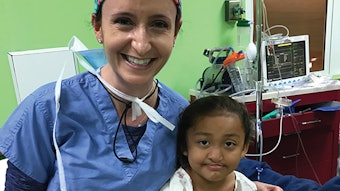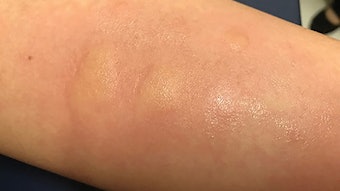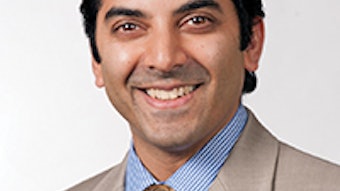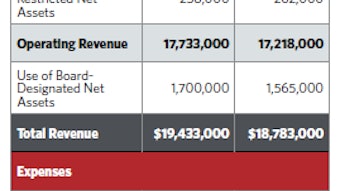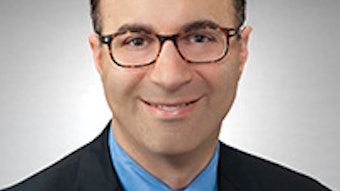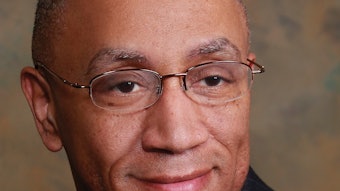Otolaryngology–Head and Neck Surgery at the Forefront of the COVID-19 Pandemic
The arrival of the novel coronavirus, COVID-19, in winter 2020 marked a watershed moment in international healthcare. As information began to circulate about the rapidly expanding pandemic, it became clear early in its expansion that this respiratory virus would have a significant impact on otolaryngologists and their patients.

The arrival of the novel coronavirus, COVID-19, in winter 2020 marked a watershed moment in international healthcare. As information began to circulate about the rapidly expanding pandemic, it became clear early in its expansion that this respiratory virus would have a significant impact on otolaryngologists and their patients. Not only did the transmission of COVID-19 depend on a reservoir of virus in the upper respiratory tract, many of its earliest patient presentations involved symptoms such as anosmia, ageusia, cough, and throat clearing.
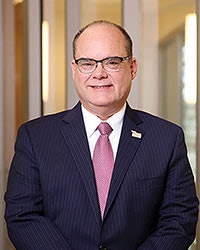 John H. Krouse, MD, PhD, MBA, Editor in Chief, Otolaryngology–Head and Neck Surgery and OTO Open
John H. Krouse, MD, PhD, MBA, Editor in Chief, Otolaryngology–Head and Neck Surgery and OTO OpenIn such an era of uncertainty, with problematic science and questionable public reports, the need for valid, reliable, and evidence-based communications becomes even more critical. It is with this thirst for accurate, actionable data and expert opinion from trusted colleagues that Otolaryngology–Head and Neck Surgery adopted a strategy of engaging the international otolaryngology community and providing rapid review and acceptance of important and relevant content from around the world. Not only was there the demand for this information from our readership, but also a strong desire of our colleagues who have been on the front lines of dealing with COVID-19 to share their experiences and interventions with our community.
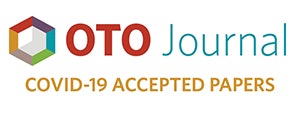
Otolaryngology–Head and Neck Surgery has accepted several COVID-19-related papers for publication. In an effort to expeditiously distribute this research, the authors have agreed to share their accepted manuscripts. A list of these manuscripts as well as those that are now published online can be found at https://www.entnet.org/content/oto-journal-covid-19-accepted-papers.
In early April the journal received a communication that described the experience of otolaryngologists in China from the earliest days of the pandemic.1 This paper was among the first to highlight that otolaryngologists were at increased risk of infection due to occupational exposure. In addition, it warned that patients could transmit COVID-19 with minimal or no symptoms. The paper further advised that otolaryngologists had been infected at higher rates than other health providers in China due to intimate contact with aerosolized secretions and admonished strict environmental controls and use of protective equipment in dealing with all patients.
Within a period of several days, Otolaryngology–Head and Neck Surgery received over a dozen commentaries and short research communications from countries around the world, including China, Italy, Singapore, and the United States. An especially instructive Italian paper related the experiences of otolaryngologists in Lombardy, providing detail of how to best operate a head and neck service in the midst of the COVID-19 crisis.2 The authors discussed their approaches to improving safety measures for otolaryngologists, including residents in graded responsibilities with patients, and increasing specialty care through a variety of methods.
It was clear that the experiences being offered by colleagues in areas such as tracheotomy management, flexible laryngology, otologic surgery, and the ethics of care were important to rapidly disseminate to the otolaryngology community. Along with our Deputy Editor Jennifer J. Shin, MD, I determined that we would expedite the peer review process to allow publication decisions within 48 hours. For many article types, such as commentaries, Jennifer and I would make these decisions editorially, without sending them for additional levels of review. For original research papers, systematic and state-of-the-art reviews, and short scientific communications, we instructed our associate editors to rapidly turn around their assessments of the submissions so that quick decisions could be returned to authors.
We also implemented several policies to increase rapid dissemination of COVID-19 articles. With the help of AAO-HNS Executive Vice President and CEO James C. Denneny III, MD, and our editorial staff, and with permission of each article’s authors, we started to post all accepted COVID-19 papers on the www.otojournal.com website at the time of their acceptance in their original typed form as submitted. This decision allowed the papers to be available to our readership prior to being typeset by the publisher and resulted in papers being available several weeks earlier. In addition, these accepted papers were referenced on ENTConnect so that members would be aware of newly published articles as they were posted. Finally, we decided to make all of these COVID-19 papers open access in Otolaryngology–Head and Neck Surgery so that readers around the world would be able to read and utilize these manuscripts, even if they did not have a subscription or license for access. We made the important editorial decision that otolaryngologists and other healthcare providers around the world would be able to use these vital papers as they became available and without cost or restriction. Dozens of papers have therefore been added to the otolaryngology literature through these important decisions at our journal.
It was clear in the early phases of the COVID-19 pandemic that many patients were experiencing a loss of taste or smell. For some patients taste and smell aberrations were their earliest symptoms and return of function would often provide an early signal of recovery from the virus. To contribute to the understanding of these important otolaryngologic symptoms, one accepted paper reported the development and initial validation of a COVID-19 anosmia reporting tool.3 Early use of this tool demonstrated that 73% of patients reported anosmia prior to the diagnosis of COVID-19 and that anosmia was the initial symptom in 27%. A recently accepted state-of-the-art review examined 12 papers that reported on anosmia and confirmed these rates; it also concluded that sudden anosmia should be considered a symptom of COVID-19.4 Manuscripts such as these provide significant value to the otolaryngology community.
It is clear that COVID-19 is a serious disease and that it creates a serious burden for otolaryngologists in the care of their patients. A recent publication demonstrated that American otolaryngologists have seen a 75% decline in outpatient visit volumes since the onset of the pandemic, second only as a specialty to ophthalmology.5 Given the uncertainties surrounding COVID-19, it has been important for Otolaryngology–Head and Neck Surgery to take the lead in bringing evidence-based science and expert opinion to our readers around the world. By taking a proactive and aggressive approach to manuscript review and by offering rapid and freely accessible articles on the topic, Otolaryngology–Head and Neck Surgery sustains its role at the forefront of scientific publication for our specialty. We will continue to publish these important papers for the duration of this unprecedented crisis.
References
- Cheng X, Liu J, Li N, et al. Otolaryngology providers must be alert for patients with mild and asymptomatic COVID-19. Otolaryngol Head Neck Surg. Published online April 14, 2020. doi: 10.1177/0194599820920649
- Saibene AM, Allevi F, Biglioli F, et al. Role and management of a head and neck department during the COVID-19 outbreak in Lombardy. Otolaryngol Head Neck Surg. Published online April 7, 2020. doi: 10.1177/0194599820917914
- Kaye R, Chang CWD, Kazahaya K, Brereton J, Denneny J. COVID-19 anosmia reporting tool: initial findings. Otolaryngol Head Neck Surg. Forthcoming 2020.
- Sedaghat AR, Gengler I, Speth M. Olfactory dysfunction: a highly prevalent symptom of COVID-19 with public health significance. Otolaryngol Head Neck Surg. Forthcoming 2020.
- Mehrotra A, Chernew M, Linetsky D, Hatch H, Cutler D. What impact has COVID-19 had on outpatient visits? To the Point blog. Commonwealth Fund. April 23, 2020. doi: 10.26099/ds9e-jm36

